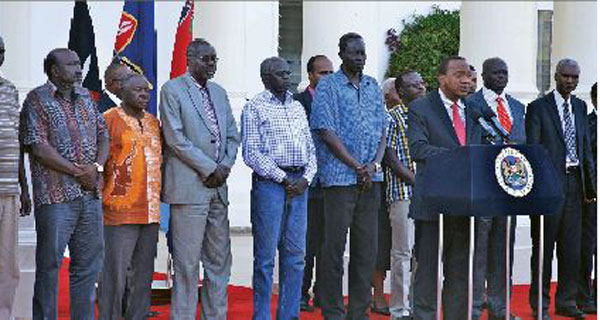×
The Standard e-Paper
Kenya’s Boldest Voice
 |
| President Uhuru Kenyatta speaks at State House in Nairobi Wednesday when he received seven freed detainees from South Sudan. [PHOTO: PSCU] |
By JAMES MBAKA
An end to the ethnic conflict in South Sudan, the world’s newest nation, was in sight Wednesday following a decision by President Salva Kiir to release seven of the 11 political detainees.